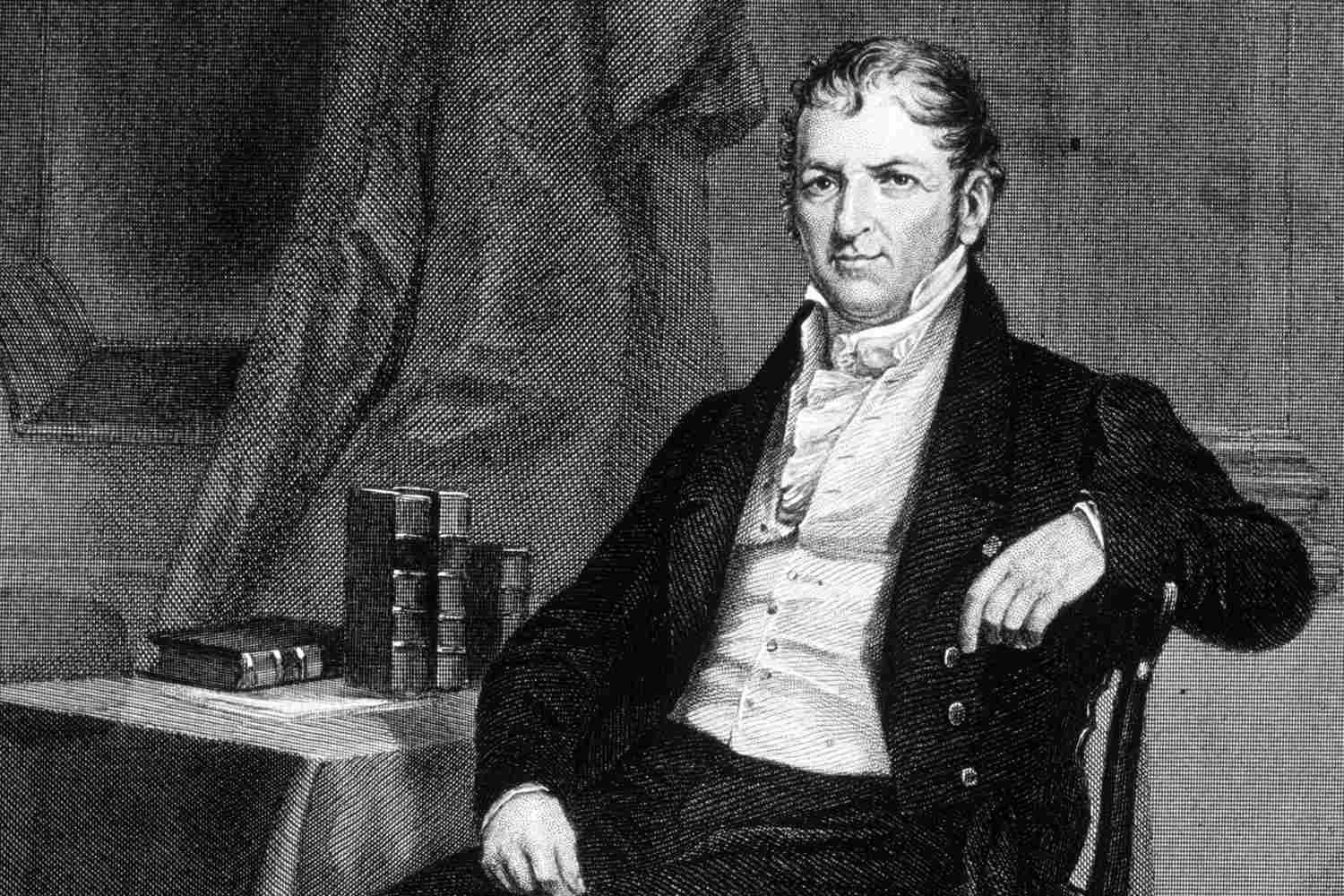Eli Whitney is widely remembered for his invention of the cotton gin, a breakthrough that forever changed the landscape of American agriculture. But less is known about his personal journey to the South and his arrival in Georgia, where he would change the course of history. So, what day did Eli Whitney come to Georgia, and why was this event so significant? In this article, we’ll explore Whitney’s early life, his arrival in Georgia, and the monumental impact of his invention on the Southern economy.
Early Life and Education of Eli Whitney
Born in 1765 in Westborough, Massachusetts, Eli Whitney grew up with a keen interest in mechanics and design. His early experiences working on mechanical devices set the foundation for his future success. Whitney graduated from Yale College in 1792, where he honed his skills in both intellectual and practical pursuits. His education prepared him for a life of innovation, although he had no idea that his most famous invention would arise from an opportunity in the South.
Journey to the South
In the early 1790s, Whitney had planned to work as a private tutor in the South, where he hoped to make a living while furthering his career. However, his path took a dramatic turn when he met Catharine Greene, the widow of General Nathanael Greene, at a dinner in Charleston, South Carolina. Greene invited Whitney to visit her plantation, Mulberry Grove, in Georgia. It was here, in 1792, that Whitney’s life would take an unexpected and transformative turn.
Arrival at Mulberry Grove Plantation
Upon arriving at Mulberry Grove Plantation in 1792, Whitney was exposed to the challenging realities of cotton production. The plantation’s owners were struggling with the labor-intensive process of separating cotton fibers from the seeds. This task was not only time-consuming but also limiting the potential of cotton as a profitable crop. Whitney, with his mechanical skills, saw an opportunity to devise a machine that could make this labor-intensive process easier and more efficient.
Invention of the Cotton Gin
Driven by the need to find a solution for the cotton industry’s labor problems, Whitney began working on a mechanical device that would separate cotton fibers from seeds. After months of experimentation, he succeeded in creating the cotton gin, a machine that revolutionized cotton production. The device utilized a set of rotating brushes to pull cotton fibers through a metal mesh, separating the fibers from the seeds in a fraction of the time it had taken workers by hand.
The cotton gin not only sped up the process but also drastically increased the profitability of cotton cultivation, making cotton the South’s most important cash crop. Whitney’s invention quickly spread throughout the region, creating a surge in cotton production and cementing Georgia’s role in the agricultural economy.
Legal Challenges and Patent Issues
Despite its success, Whitney’s cotton gin was not without its challenges. Whitney faced numerous legal battles over patent rights, as many Southern planters were quick to replicate the machine. Whitney and his business partner, Phineas Miller, fought to secure the patent rights for their invention, eventually succeeding in 1794. However, the cotton gin’s widespread use meant that many planters continued to infringe upon the patent, leading to prolonged legal struggles.
Legacy and Impact
The cotton gin’s impact on the South was profound. It allowed for the mass production of cotton, which became the backbone of the Southern economy. As cotton plantations expanded, so did the reliance on enslaved labor, which fueled the rise of the cotton economy. The increased demand for cotton also had far-reaching effects on global trade and industry.
In addition to revolutionizing the cotton industry, Whitney’s cotton gin helped spur the industrialization of America. Whitney would go on to contribute to the development of interchangeable parts in manufacturing, a concept that would later become a cornerstone of American industry.
Conclusion
Eli Whitney’s arrival in Georgia in 1792 set in motion one of the most significant technological advancements in American history. His invention of the cotton gin not only transformed the agricultural landscape but also had far-reaching social, economic, and political consequences. While his arrival may not have been marked by fanfare or immediate recognition, the day Whitney stepped foot in Georgia marked the beginning of a new era. His contributions to both the cotton industry and American manufacturing would shape the future of the nation for generations to come.
Frequently Asked Questions (FAQs) About Eli Whitney’s Arrival in Georgia
What is Eli Whitney’s lasting legacy in Georgia? Eli Whitney’s legacy in Georgia is largely defined by his invention of the cotton gin, which not only revolutionized the cotton industry but also had far-reaching effects on the economy, slavery, and the South’s role in global trade. His work continues to be celebrated for its contribution to American industrialization.
When did Eli Whitney arrive in Georgia? Eli Whitney arrived in Georgia in 1792. He traveled to the state after being invited by Catharine Greene, the widow of General Nathanael Greene, to visit her plantation, Mulberry Grove.
Why did Eli Whitney come to Georgia? Whitney came to Georgia to work as a private tutor on the invitation of Catharine Greene. However, his visit to Georgia would lead to one of his most important inventions—the cotton gin.
What was the significance of Eli Whitney’s arrival in Georgia? Whitney’s arrival in Georgia in 1792 set the stage for the creation of the cotton gin, which would revolutionize cotton production and significantly impact the economy of the South. His invention greatly increased the speed of cotton processing, making cotton a major cash crop in the region.
Did Eli Whitney stay in Georgia after inventing the cotton gin? After inventing the cotton gin, Whitney continued to work on the patent and faced legal battles over its infringement. He later moved to New Haven, Connecticut, to focus on his manufacturing endeavors, including contributions to interchangeable parts in firearms.
How did Eli Whitney’s cotton gin impact Georgia? The cotton gin had a monumental impact on Georgia and the entire Southern United States. It greatly increased cotton production, leading to the expansion of cotton plantations and the entrenched use of enslaved labor. The cotton gin transformed Georgia into a key player in the global cotton trade.
What role did Mulberry Grove Plantation play in Eli Whitney’s life? Mulberry Grove Plantation, where Whitney arrived in 1792, played a critical role in his invention of the cotton gin. It was at this plantation that Whitney saw firsthand the challenges of cotton processing and was inspired to develop his revolutionary invention.
What challenges did Eli Whitney face with his invention in Georgia? Despite the success of the cotton gin, Whitney faced numerous legal battles over patent rights. Many Southern planters illegally replicated the gin, which led to years of litigation before Whitney secured the patent rights for his invention in 1794.
How did Eli Whitney’s invention change the South? The cotton gin made cotton cultivation far more efficient, leading to an explosive increase in production. This, in turn, fueled the demand for more land and enslaved labor, solidifying the importance of cotton in the Southern economy and transforming the region’s agricultural practices.
Was Eli Whitney’s arrival in Georgia planned or accidental? Whitney’s arrival in Georgia was not initially planned as a career move. He was invited to the state by Catharine Greene to be a private tutor, which unexpectedly led to his invention of the cotton gin and subsequent influence on the Southern economy.










